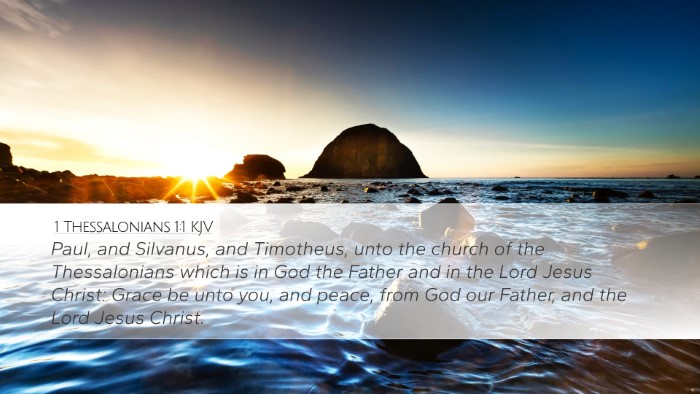In our message, FAITH, LOVE, AND HOPE (1 Thes. 1:1-5), we started a new series on the book of 1 Thessalonians.
The Apostle Paul founded the church in Thessalonica on his second missionary journey in LESS THAN FOUR WEEKS after heeding the call from the Holy Spirit to preach in that region of Macedonia (Acts. 16:6-10; Acts 17:2). Thessalonica was the regional capital of that Roman province, numbering about 200,000 inhabitants to include Greeks, Roman citizens, and a strong Jewish minority with its own “synagogue” (Acts 17:1). “As his custom was,” Paul preached Jesus is the Savior of the world first at the synagogue (Acts 17:2-3), and “some” Israelites came to faith, but even more- “many” non-Jewish God-fearers trusted in Christ to include several prominent “women” of the city of Thessalonica (Acts 17:4). A riot was instigated from the non-believing Jewish leaders who were jealous of Paul and his message forcing Paul to the town of Berea, and then to the city of Athens before Paul wrote 1 Thessalonians at Corinth with Silas and Timothy present to carry the message back to Thessalonica (Acts 17:5-15; Acts 18:1-5; 1 Thes. 1:1, etc.). Paul wrote the book of 1 Thessalonians to encourage the new believers there who were doing well, but who also were going through intense persecution which can lead to discouragement and temptation to compromise (1 Thes. 1:6; 3:3-5, etc.). God wanted to ground them in the doctrines of Christian faith- particularly with respect to Christ’s return (1 Thes. 4-5; 1 John 3:2-3; 1 Cor. 11:31-32; 1 John 2:28, etc.).
God is thankful for their response to the Gospel (1 Thes. 1:2) which was evidenced by their “work of faith, labor of love, and patience of hope” looking actively for Christ’s return (1 Thes. 1:3). This is the first time Paul writes (about 51AD) of these three virtues together (Colossians 1:5 was penned later by Paul after Acts 28), and in 1 Thessalonians, unlike Romans 5:2-5 and 1 Corinthians 13:13, their order also speaks to the three dimensions of a Christian’s salvation. As God’s children, we were saved from the penalty of sin (i.e. justified) “through faith” when we first trusted the Gospel; we are being saved from the power of sin today (i.e. sanctified) as we let God’s “love” “labor” through us; and one day we will be saved from the very presence of sin (i.e. glorified) when Christ comes for us… (this is our sure and steadfast “hope” which we are to patiently wait for- 1 Thes. 1:3; 5:8; Eph. 6:7; Rom. 8:28-30, etc.).
It is important to note that the word “work” (Grk. érgon) in verse 3 may be pleasant and stimulating, but the Greek word for “labor” (i.e. kópos) involves strenuous effort to the point of fatigue and exhaustion (i.e. toil). Our call to follow Christ and be filled with Him as His disciples involves “discipline” because His true and holy love (i.e. the love of Christ) is sacrificial by nature (John 3:16; Mark 8:34; Gal. 5:17; Rom. 6:11; 7:18, etc.). But praise be to God that He pours that love out in our hearts through the Holy Spirit who indwells us as/when we walk with Him! (Eph. 5:18; Rom. 5:5, etc.).
Faith, hope and love are evidences of a Christian’s “election,” but they are not the fact of it (1 Thes. 1:4; 1 Cor. 3:15; 2 Tim. 2:11-13; 1 John 2:28, etc.), because we are saved “by grace… through faith” when we trusted in Christ alone as our Savior (Eph. 2:8-9; John 3:7, 16; Rom. 8:31-39, etc.). God’s Word- the “gospel… [had come to them] in power, and in the Holy Spirit, and in much assurance” (1 Thes. 1:5; John 16:8-11, etc.) as Paul and his companions shared it with them in sincerity of heart and purity of life (1 Thes. 5:5b; Acts 1:8; 1 Cor. 2:4-5, etc.).

